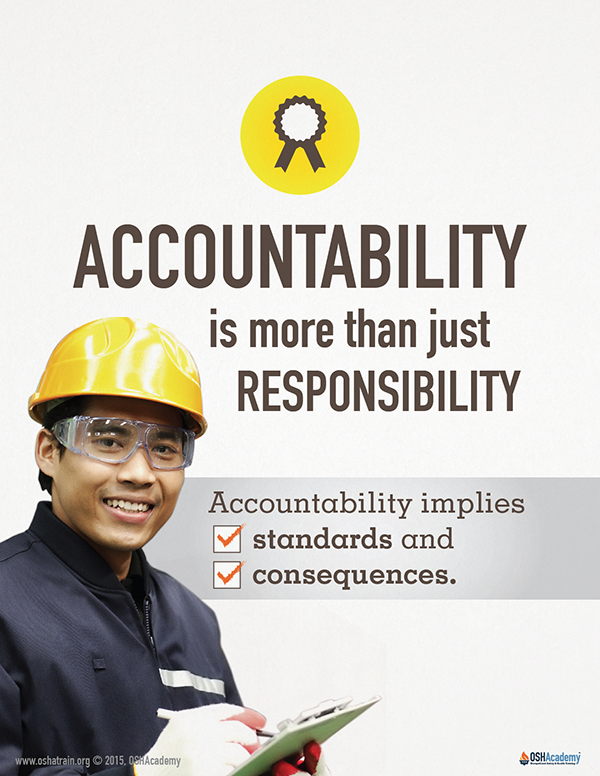Standards, Resources, and Measurement
What is "Accountability?"
You hear the terms "responsibility" and "accountability" a lot when dealing with safety and health, and sometimes people use the terms as though they have the same meaning. The question to ask is, "are you responsible and accountable for your safety performance?" So, let's take a look at both concepts to help answer that important question.
Are You Responsible?
Being "responsible" implies that you have been assigned a position or have a duty to perform. One important employee responsibility is to work safely. Think of "responsibility" as an assignment.
Are You Accountable?
Being "accountable" exists when you are subject to consequences based on your safety performance. Accountability is a condition that exists when outcomes your employer administers depend on your safety performance.
In other words, when you are held accountable, your safety performance is measured against company performance standards and expectations, and based on your performance, consequences are administered. As you'll see, those consequences are perceived as positive or negative.
For example, an employer is held accountable by OSHA standards that detail specific performance requirements. Since accountability requires a consequence, one of two outcomes must occur:
OSHA and Accountability
- If OSHA inspects a workplace and determines that the employer meets or exceeds their standards, OSHA is happy, and they go away, and consequently, the employer is happy.
- If the employer fails to meet safety standards, OSHA may cite the employer for violations and issue monetary penalties. OSHA is not happy, and the employer is most certainly not happy.
In either case, OSHA administers consequences - they leave or they penalize. Just remember, effective accountability for safety exists only when employee performance results in appropriate consequences: This is the fundamental principle of an successful accountability system.
Knowledge Check Choose the best answer for the question.
1-1. What is the difference between responsibility and accountability?
You forgot to answer the question!

